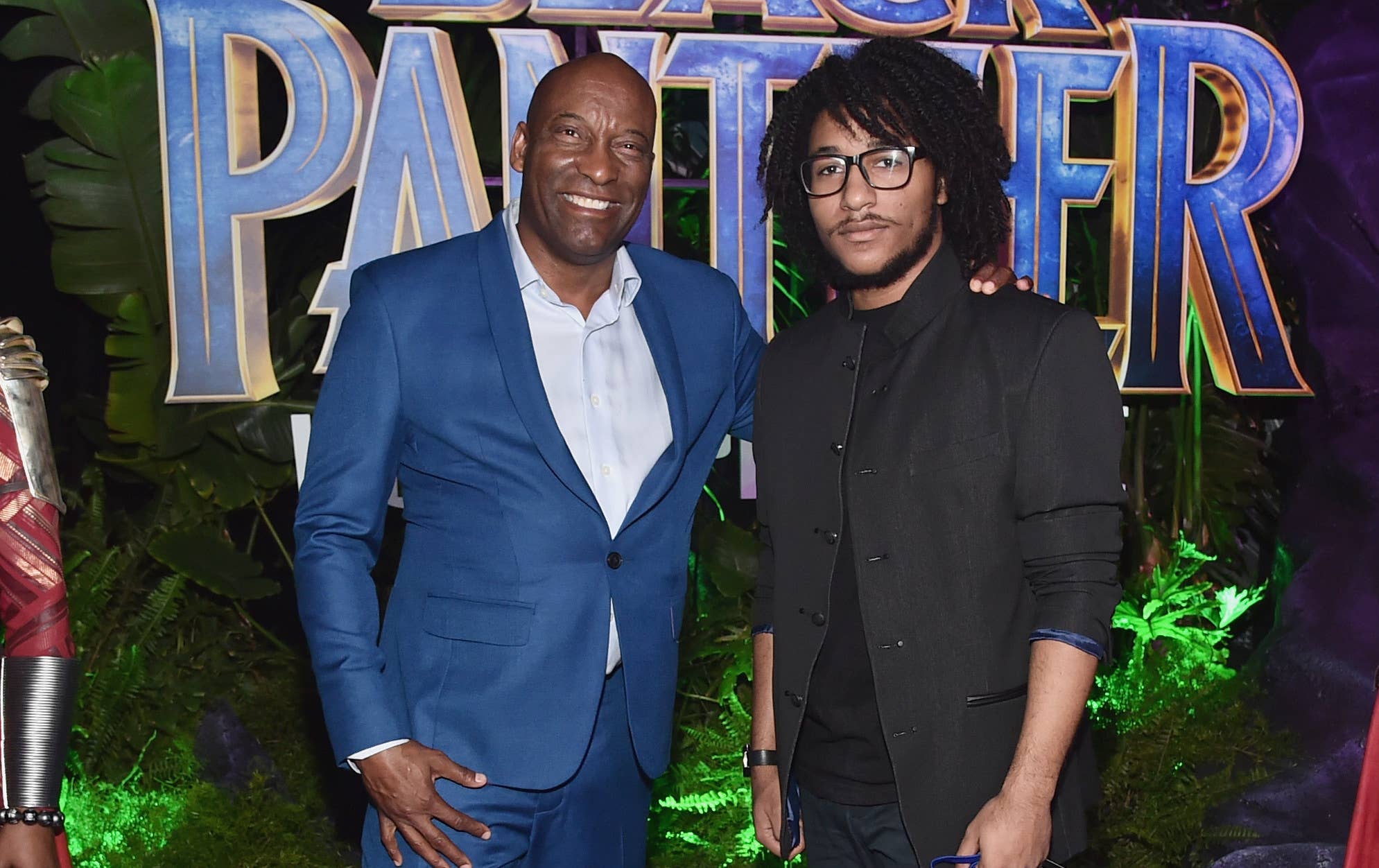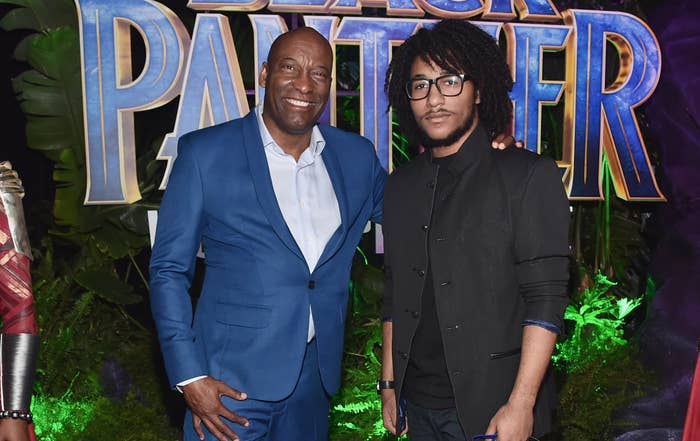
John Singleton left a significant void behind when he died in 2019—and no one knows that better than his son, Maasai.
However, Singleton’s legacy lives on through his family and the countless movies he directed, like Boyz n the Hood, and shows he created, like the hit Snowfall. The famed director ensured that he imparted bountiful wisdom and lessons for future generations and filmmakers to come and his son believes that he was able to do so because of Singleton’s natural ability to teach.
“My dad had the heart of a teacher. It was really a blessing because he took that position in fatherhood and was always trying to teach me something,” Maasai tells Complex. “I learned a lot in the time that he was here because he was actively trying to teach.”
Singleton died ahead of Snowfall’s third season. Following the direction he left behind, the show continued to soar for three more seasons, becoming FX’s most-watched show while remaining a fan favorite and making its lead, Damson Idris, a star. The series finale had viewers torn after seeing the anti-hero protagonist Franklin Saint lose everything after evolving from an eager kid trying to make a quick buck to a man who built one of the biggest drug empires on the West Coast. The finale featured callbacks from the first episode, which showed that perhaps ending up alone, an alcoholic, and on the street was Franklin’s destiny all along.
Maasai, who is also in the industry and mainly focusing on animated projects, thought that the writers successfully and accurately carried out his dad’s approach and ethos in storytelling with the finale. “I thought that the ending of Snowfall was very appropriate,” he says. “Knowing my dad and also looking at his work, it seems that in the John Singleton universe, karma exists.”
The show ended right before Hollywood encountered a Writers Guild of America strike that demands better payment and treatment of TV writers. Maasai says that his dad was a supporter of unions and would have been on the writers’ side. “My dad loved unions. He in fact told me to join as many unions as I can,” Maasai shared. “I do believe that my dad would support the strike and want people to know that Snowfall could not have been made without the collective work of the writer’s room.”
Complex hopped on a call with Maasai to talk about the Snowfall finale, his father’s legacy and impact on entertainment, and what the future of TV could look like if AI takes over.
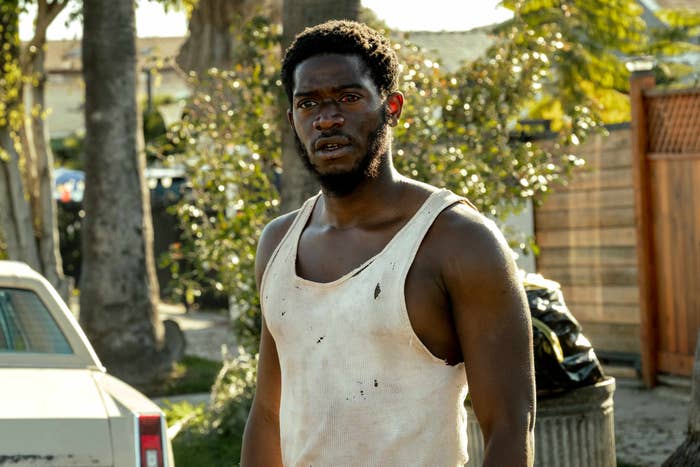
Can you tell me a little bit about how you felt about how Franklin’s ending and how the show wrapped as a whole?
I thought it was very appropriate, even though my dad’s not here anymore, obviously, I thought it was very appropriate of an ending for something that he helped start. Because if you look at his body of work, for example, in Boyz, Tre [Cuba Gooding Jr.] goes off and I believe at the end the notes talk about him going to college, and Doughboy [Ice Cube] participates in the shooting and he’s murdered a couple of weeks later. And years ago, I remember my dad, another example, he tried to create a video game in 2000 and it was going to be like Grand Theft Auto, except your choices impact the ending that you get.
If you did that it means you would get the bad ending. And so I thought that the ending of Snowfall was very appropriate because knowing my dad and also looking at his work, it seems that in the John Singleton universe, karma exists.
I rewatched the first episode and there was a lot of foreshadowing, and I’m sure it was intentional. Your dad’s influence remained in the show throughout the series. How do you feel about the writers making sure they incorporate those themes that he had at the start of the series in the finale?
That’s just good writing on its own. I got a lot of film education from my dad growing up. I’m sure he gave the same kind of speeches that he gave me when he was sitting in the writers room day to day. And that’s one of the things he would say over again, “Set up and pay off, set up and pay off.” It’s one of those things where that rhyming of scenes and that rhyming of moments in the stories is one of the things that my dad found valuable and I’m sure he talked about that in the room.
Did you know that they were going to do that ode to him where you see him filming Boyz n the Hood on the side when Franklin and Leon are walking out?
I didn’t know that was going to be in the finale, but I remember… I worked on Snowfall in, I believe it was Season 3, that’s when my dad passed away. That character is credited as young John, I think, that’s the character’s name.
Yeah, we’ve seen him before, he’s filming and Leon tries to beat him up.
Yeah, I think he’s supposed to be the same character from that other season. So no, I didn’t know that it was going to be a bookend and be filmed in the finale, but it was nice. I remember I was really emotional on set when we were shooting those scenes in Season 3. And it was a good Easter egg for the finale where literally he’s shooting Boyz n the Hood. It was beautiful.
Your dad handpicked Damson to be on the show and he carried it for six seasons. How do you feel about his portrayal of Franklin on Snowfall?
He did a great job. Obviously, that was one of my dad’s skills, finding talent and elevating talent. It’s not like he created the talent, but finding those people who are right for it and helping to elevate their art and collaborating with them like putting Ice Cube, this rapper, as one of the leads in your movie. That was one of the big things that he did: Finding talent and putting them in those positions. And I remember he said at one point he was boasting, bragging, he said, “I’m not a star, I make stars.”
A lot of great TV shows like The Sopranos, Atlanta, and now Snowfall, leave things open-ended. We don’t really know what happens after Franklin walks away in that final scene. How do you feel about those open-ended finales?
I think it was appropriate, and I personally don’t believe it’s very open-ended. I think Franklin came back. I’ve seen people have conversations about the ending and talk about their experiences in that time in LA and the crack epidemic and everything. And they were like, there were no winners. And that’s a time when my dad was a kid and he was very observant of the world around him, being somewhat of an introvert, the type of person who would grow up to be a writer.
That experience growing up in that environment and paying attention to what was going on around him is what developed his philosophy that I spoke about a little earlier, about how the choices that we make affect our futures. There’s a reason Tre gets out of that car in Boyz. He makes decisions that after the end of that movie will go on to affect the life that he has. And of course, Boyz is semi-autobiographical, so Tre is my dad.
How do you feel when you go online and you see people talk so passionately about a show that your father created?
I love it. I think my dad would be vibing with it. He was a big lover of his culture and the culture he came from and his people. And he would love to see that people were, like I said, vibing with the ending and having conversations about it and that there’s a community around it.
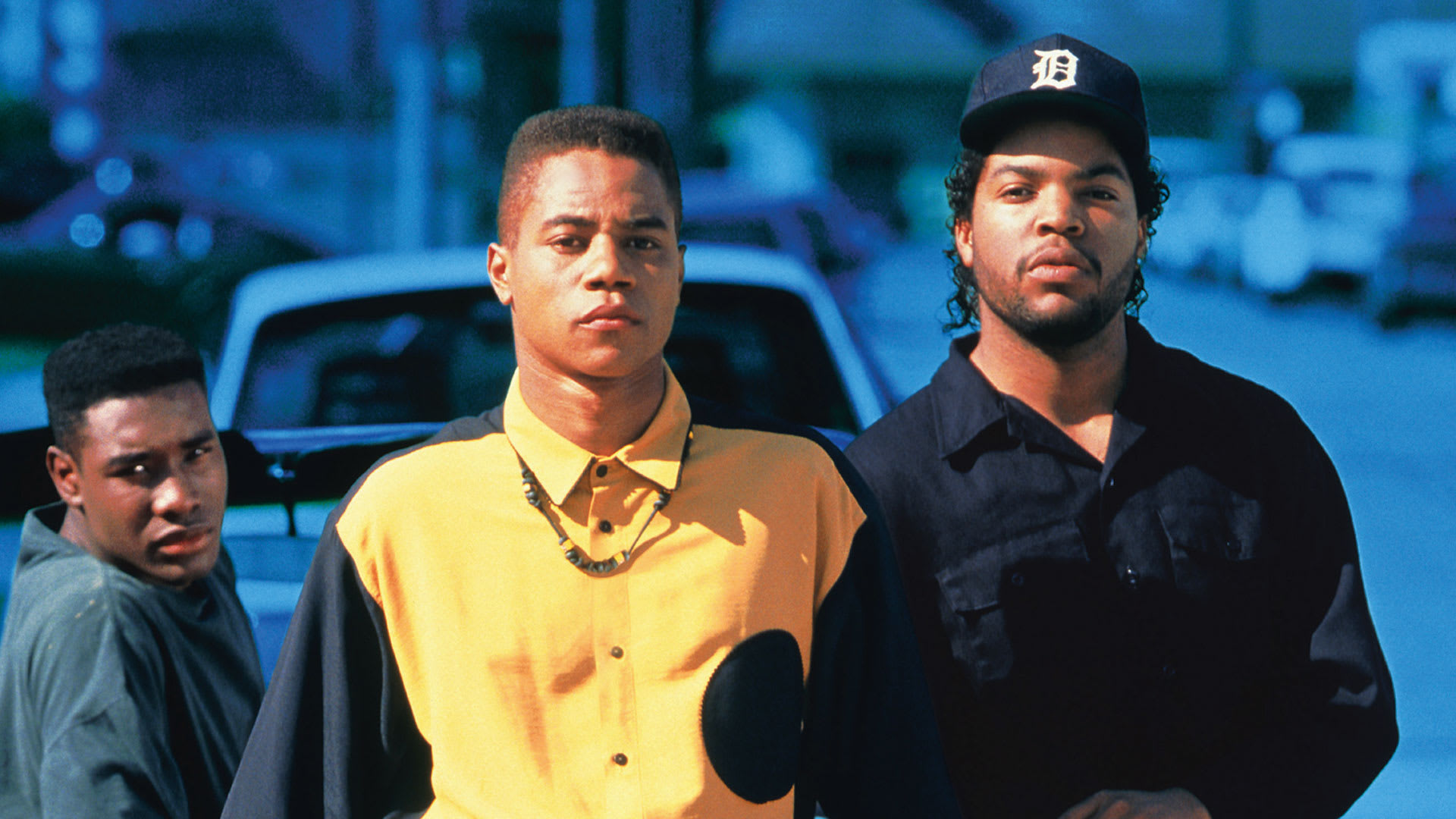
Damson spoke about this to Complex too, but people feel so strongly about the show and the fans that love Snowfall. But we didn’t see it get any nominations in terms of Emmys or things like that. Is that something you think your dad would’ve cared about?
I think he would have cared and he wouldn’t in that, there were moments in his life when I heard him talk about being frustrated at people in the industry who, in his words, did not respect him as an artist. I think that is something that he would find frustration with, but I think he would find comfort in the fact that the culture was vibing with the show and enjoying it and having conversations about it. I think that’s what’s more important to him.
We know how all these nominations go. Sometimes they don’t even watch the stuff. They just watch stuff with people who look like them and they can relate to.
The legacy of this show is that now, I think, it’s going to be talked about and grouped with shows like The Wire, Breaking Bad, and The Sopranos, there are a lot of comparisons to those shows because of the anti-heroes. How does it feel for you to know that it’s been cemented as part of pop culture now?
My dad would’ve loved what you just said because those three shows that you mentioned were shows that he loved. He loved Breaking Bad, he loved The Wire. I remember when The Wire was coming out, going into my dad’s room, and him being at the edge of the bed sitting in his boxers watching The Wire. He’s like, “You got to see this.” And The Sopranos specifically, he studied when he was getting into making the move from features to television. He studied The Sopranos. I remember him sitting on the beanbag in his office just watching The Sopranos on repeat. Whenever he had free moments, he would just go in there and watch it so he definitely learned from that show.
That’s the type of person he was, and that’s something that I learned from him; that’s sort of something we bonded over as well, that dual relationship between being a fan and a creator. Anytime he was on a project or gearing up for a project, he would sit down and pay reference to the artists who came before him. And obviously his peers as well, the things that came before, the new thing that he was going to make and studied them to think through how he was going to approach what he was doing.
Now that I think about it, there are so many similarities between Franklin and Tony.
It’s interesting the conversations about the end. Some people wanted him to make it out with all the money. I feel like, like I said, the John Singleton universe, it had to be a tragedy for him because crime doesn’t pay.
How do you feel about the writers strike that’s going on right now? It might be a long time before we get another Snowfall. How are you feeling about that?
I pretty much focus on animation. All my work has been in the Animation Guild. I haven’t written anything in the Writer’s Guild yet. Although I hope to join the Writer’s Guild one day. But I did want to say I do believe that my dad would support the strike and want people to know that Snowfall could not have been made without the collective work of the writers room. My dad loved unions. He in fact told me to join as many unions as I can. Obviously, he was a writer and director, so he was in multiple unions. I believe that there are some important issues on the table, especially if you’ve seen the two-page document with a list of demands and some of the responses that the writers have gotten. I think that the AI situation specifically is a very important thing for writers to fight on, and I hope that we make headway.
The problem is I’m in, like I said, animation, so most of the conversation I’ve seen about it is coming from artists with the visual AI makers. And that’s very insidious because it’s like those have been preying on the fun factor for the general public. People love putting their pictures in and saying, “Oh, I got a pretty picture and I didn’t have to pay a commission to an artist.” But you can’t replace heart. But the issue is we are, as writers, we’re conscious of the fact that we’re telling stories for capitalism, we’re telling stories for money, we’re conscious of that fact. But the issue is that if you only focus on the bottom line, and often corporations can focus on the bottom line to the detriment of their futures because the person who is in charge now doesn’t care if the company exists in five years, they’re going to get their parachute and move on to the next thing.
The issue is, of course, AI can’t do it like people do, but people who are in decision-making positions who only care about money and not in the long term, only in the short term, don’t care that AI isn’t as good as human writers or human artists. They will try to put forward the bare minimum that audiences will accept. On that note, it is important as well for consumers, for fans, to be in solidarity with writers, with artists who create what they love.
Good writing, strong writing makes us feel something, makes you think, makes you feel, and makes us consider our own choices.
AI can only put out an algorithmically produced regurgitation of things that already exist. I’ve written a lot of animated shows. So far I’ve done a lot of things with giant robots. I wrote on two Transformers shows, and I’ve been getting more into anime-inspired projects because I’m fluent in Japanese and I’ve spent time there.
When I’m making a project and it’s incorporating elements from African-American culture and Japanese cultures, that comes from the fact that I lived in both of those cultures and deal with people from both of those cultures in an authentic, engaging way. A computer doesn’t have those experiences. If you tell a computer to do this thing with American characters in an anime style, it’s just going to be a bunch of racist stereotypes.
A computer is incapable of understanding those things because it doesn’t have a soul. Computers don’t have cultural literacy. We have difficulty enough having human beings authentically and respectfully engage with each other’s cultures. We can’t trust a computer to do a thing that we can’t trust humans to do.
That’s another reason I do believe that my dad would support the strike, especially that AI note. If back in the day they were relying on AI to see what type of movies they should make, Boyz n the Hood would not have gotten made because there was no John Singleton yet. I’ve talked to some filmmakers of the ‘90s who straight-up told me, “I pitched such and such because your dad made Boyz and I was trying to break in.”
The AI would only start making those growing up in the hood movies after John Singleton did what he did. It only works on data that it already has. You need human beings to push the envelope. Human beings who understand this, at the present moment, are the only people who can push things forward.
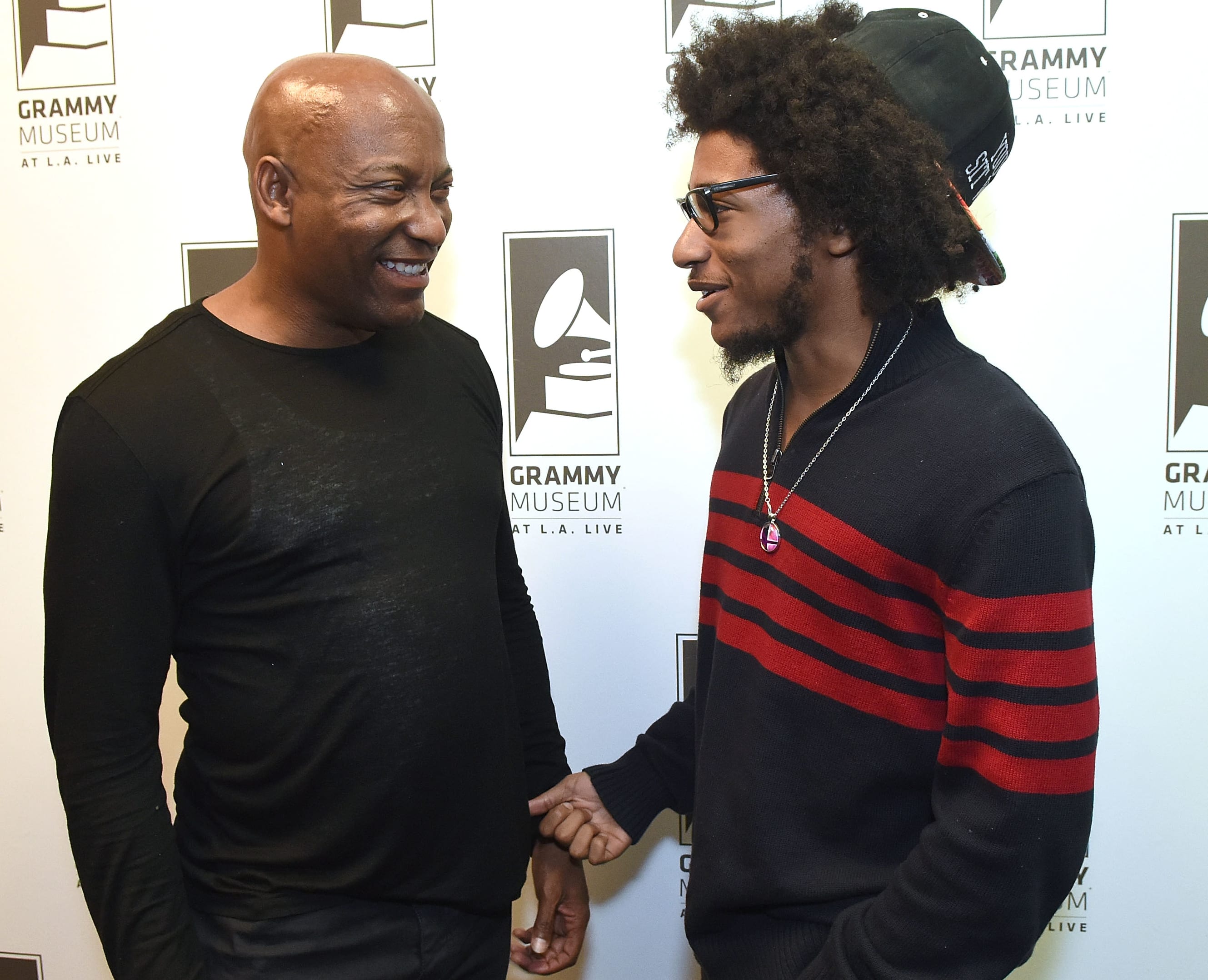
How do you feel that this show and your dad’s legacy will continue in years to come?
The legacy of my dad is the many people who were influenced by having him in their lives. Obviously, he had children, he had me, but he also was active in the industry with helping people build their careers. And in his heart, he was a teacher and he taught many people many things. A lot of those people are going on to make their own way in the industry. I’m sure we’ll see amazing work from those people in the future as well.
Your father left us a lot of gifts that we can always look back on. And in this conversation, I’ve learned so much so I can’t imagine what spending a lifetime with your dad has taught you.
What I’m thankful for is even though I was too young when my dad passed away—I was only 25, and sometimes I look at older people who are 60 and their mom and dad are still here, and I feel a little bit of envy—my dad had the heart of a teacher. It was really a blessing because he took that position in fatherhood and was always trying to teach me something. Even with the time that I lost with him, even though I didn’t have those decades that were lost, I still learned a lot in the time that he was here because he was actively trying to teach.
Whereas many other parents, I’m sure, assume that their kids are going to learn through osmosis, my dad was always, “Maasai, look at this. Maasai, pay attention to this.” And he had these slogans that he would say over and over again. I have a notebook on my desk where when I remember one of my dad’s mottos, I open the notebook and I write it down to remind myself of things my dad used to say to me.
So that I can share them with my daughter as she grows up and with my future children as well. Actually, my daughter is named after my dad. Her name is Johanna, the German feminine of John. I look at her sometimes and I tell my wife, I’m like, “I know he would adore her.” She looks so much like baby me and my little sister. The best thing is to see the faces of the people you love in them.

